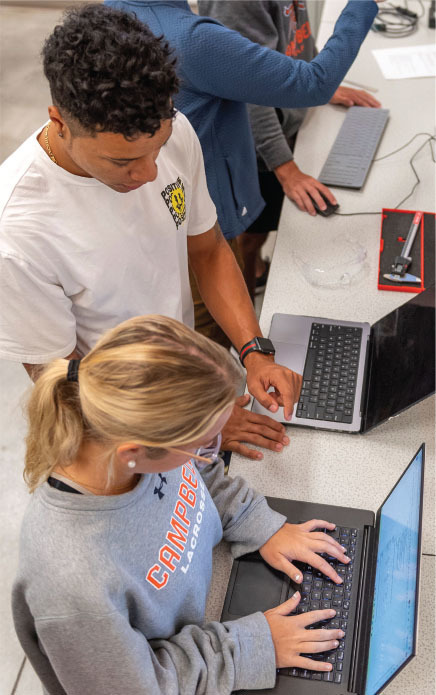Winter 2022
NSPE Today
STEM Stereotypes Start Early, Study Shows
As NSPE and other engineering organizations work to make the profession a more welcoming environment for all people, new research indicates those efforts need an early start.
The perception that boys are more interested than girls in computer science and engineering starts as young as age six, according to a study published in Proceedings of the National Academy of Sciences. That may be one reason why girls and women are underrepresented in these STEM career fields, reports study coauthor Allison Master, assistant professor at the University of Houston College of Education.
“Gender-interest stereotypes that say, ‘STEM is for boys’ begin in grade school, and by the time they reach high school, many girls have made their decision not to pursue degrees in computer science and engineering because they feel they don’t belong,” says Master.
Breaking the stereotypes that have limited the profession’s diversity has become a higher priority for engineering organizations in recent years. In 2017, NSPE adopted a professional policy on diversity that calls for “a diverse and welcoming environment for everyone interested in the licensed practice of engineering.” The policy continues, “NSPE recognizes the benefits of a diverse population of licensed engineers in shaping the future of engineering. Diverse backgrounds foster unique contributions and capabilities and create an inclusive community ultimately leading to a more creative, effective and technically respected community.”
Diversity is also a major theme in NSPE’s strategic plan; the Diversity, Equity, and Inclusion Advisory Committee, formed in 2019, provides guidance on the Society’s strategies and activities in these areas.
The study, conducted by researchers at the University of Houston and the University of Washington, surveyed nearly 2,500 students in first through 12th grades from diverse racial and socioeconomic backgrounds. The results of those surveys were combined with laboratory experiments to provide important insights into how stereotypes impact children’s motivation.
More children believed girls had less interest than boys in key STEM fields. Specifically, 63% of the students believed girls were less interested in engineering than boys were, while 9% believed girls were more interested in the subject. Regarding computer science, 51% thought girls had less interest while 14% thought girls had more interest than boys.
These interest patterns play out in the job market. According to United States Census Bureau statistics, while women make up nearly half of the workforce, they account for only 25% of computer scientists and 15% of engineers.


 Volunteering at NSPE is a great opportunity to grow your professional network and connect with other leaders in the field.
Volunteering at NSPE is a great opportunity to grow your professional network and connect with other leaders in the field. The National Society of Professional Engineers (NSPE) encourages you to explore the resources to cast your vote on election day:
The National Society of Professional Engineers (NSPE) encourages you to explore the resources to cast your vote on election day:










